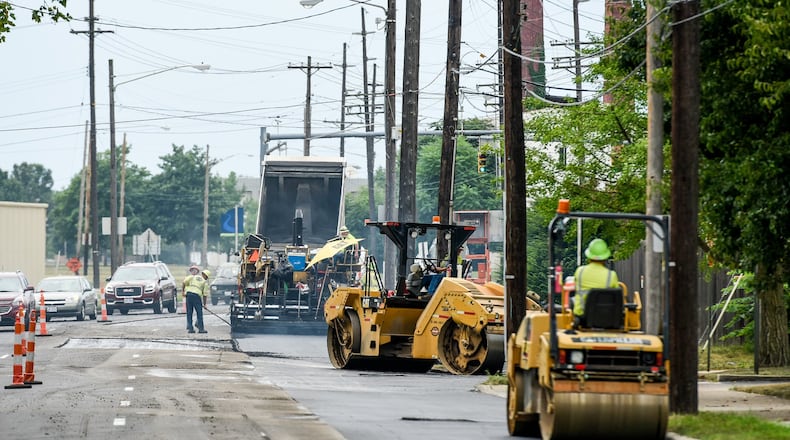As part of the pre-planning and engineering work, both cities are aligning any plans for underground utility projects to make sure any needed water or sewer utility work is done before any street paving starts to avoid cutting into new pavement.
In Middletown
Middletown City Manager Jim Palenick said voter approval to raise the city income tax by 0.25% to 2% for 10 years pleased city officials “because it passed by a substantial margin.”
The issue passed 57% to 43% between Butler County and Warren counties Tuesday night. It was the first time the city income tax was raised since 2007.
“It was very fulfilling to see that the public wants it and we’re moving forward with a consensus of the community,” he said. “We’re committing to get this done by the end of 2022.”
The additional income tax revenue is earmarked for streets for 10 years and is expected to generate $31.3 million. City officials are planning to pave 137 lane miles through 2022 by leveraging the bond issue revenue into a mega street paving project.
That would also be in addition to about $4 million in street/road improvement and paving projects that are programmed into the 2021 city budget. Officials said that funding is from various revenue such as the auto/gas taxes, license plate registration fees as well as state and federally funded grants and other infrastructure programs.
The city has not come up with a list of streets to be repaired and/or resurface as the pre-planning and GIS map-based work have not been completed.
Palenick said the city anticipates issuing bonds this spring so work can begin in the 2021 construction season.
HAMILTON
Hamilton is a little further along as voters passed a 10-year, 3.9-mill tax levy on April 28 that will generate $3.1 million a year or a total of $31 million. It passed in the spring by a margin of 50.82% to 49.18%.
Hamilton City Manager Joshua Smith said input was solicited from residents from its 17 neighborhoods on which streets needed the most work. That input will be first consideration when paving starts in 2021, he said.
Smith said survey results have been forwarded to the city engineering department, which will align underground utility projects for water and sewer with street projects to be completed.
Another factor will be contractor availability. Smith said he’ll be contacting Palenick to explore if the two cities could work together to save costs.
Smith said the annual levy revenues would come in addition to the $2 million for street improvements that Hamilton spends annually.
Brandon Saurber, city spokesman and director of neighborhoods, said levy funding would be proportionally used in the neighborhoods. He said no state highways will receive levy funding for road repairs and improvements.
About 1,270 residents from all 17 neighborhoods submitted votes on their street-paving preferences. Grand Boulevard was the top vote-getter, but that street will have work done by the end of 2020, Saurber said.
Tylersville Road and Sanders Drive, respectively, were the next top picks of residents for street improvements, he said.
About the Author

